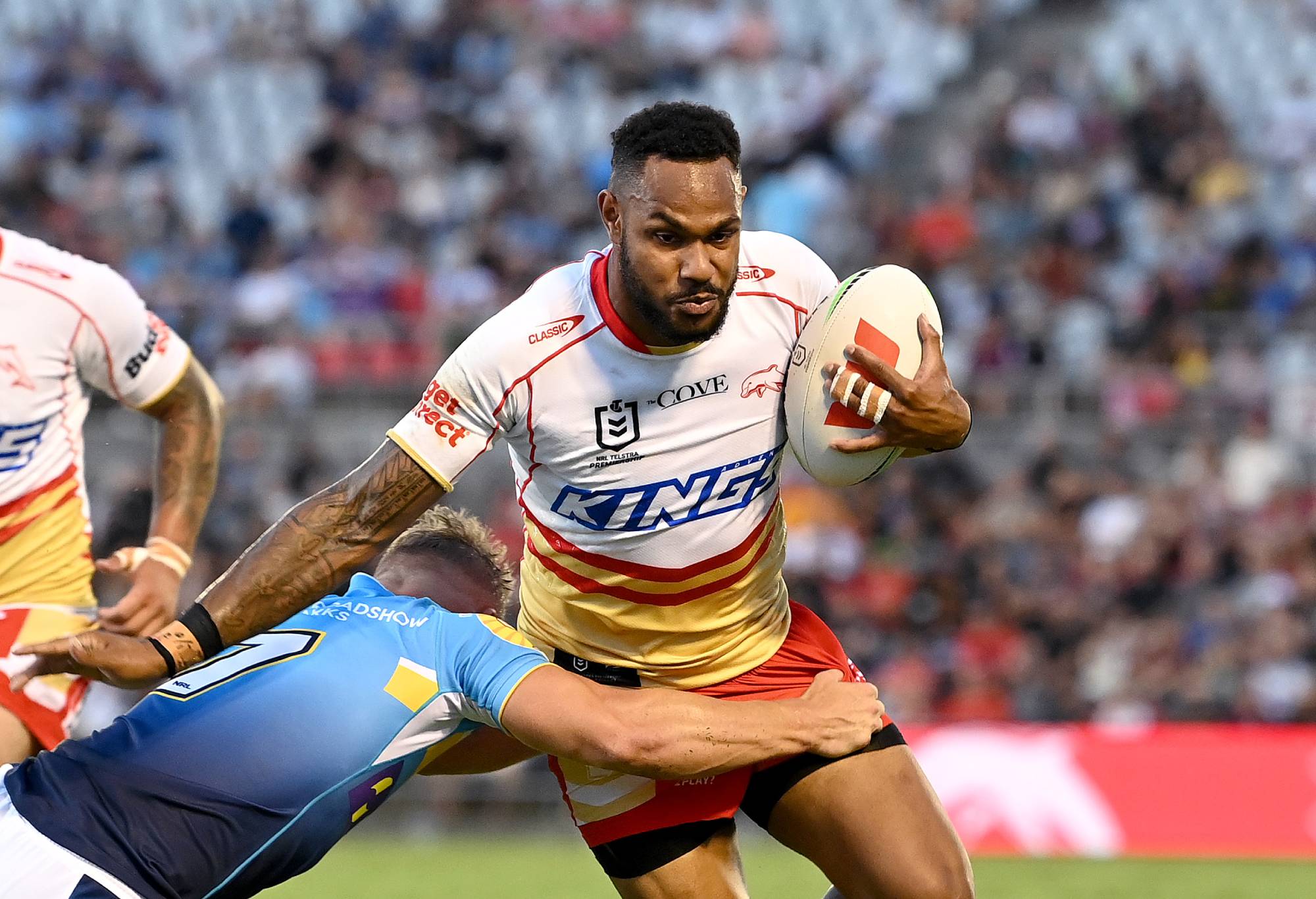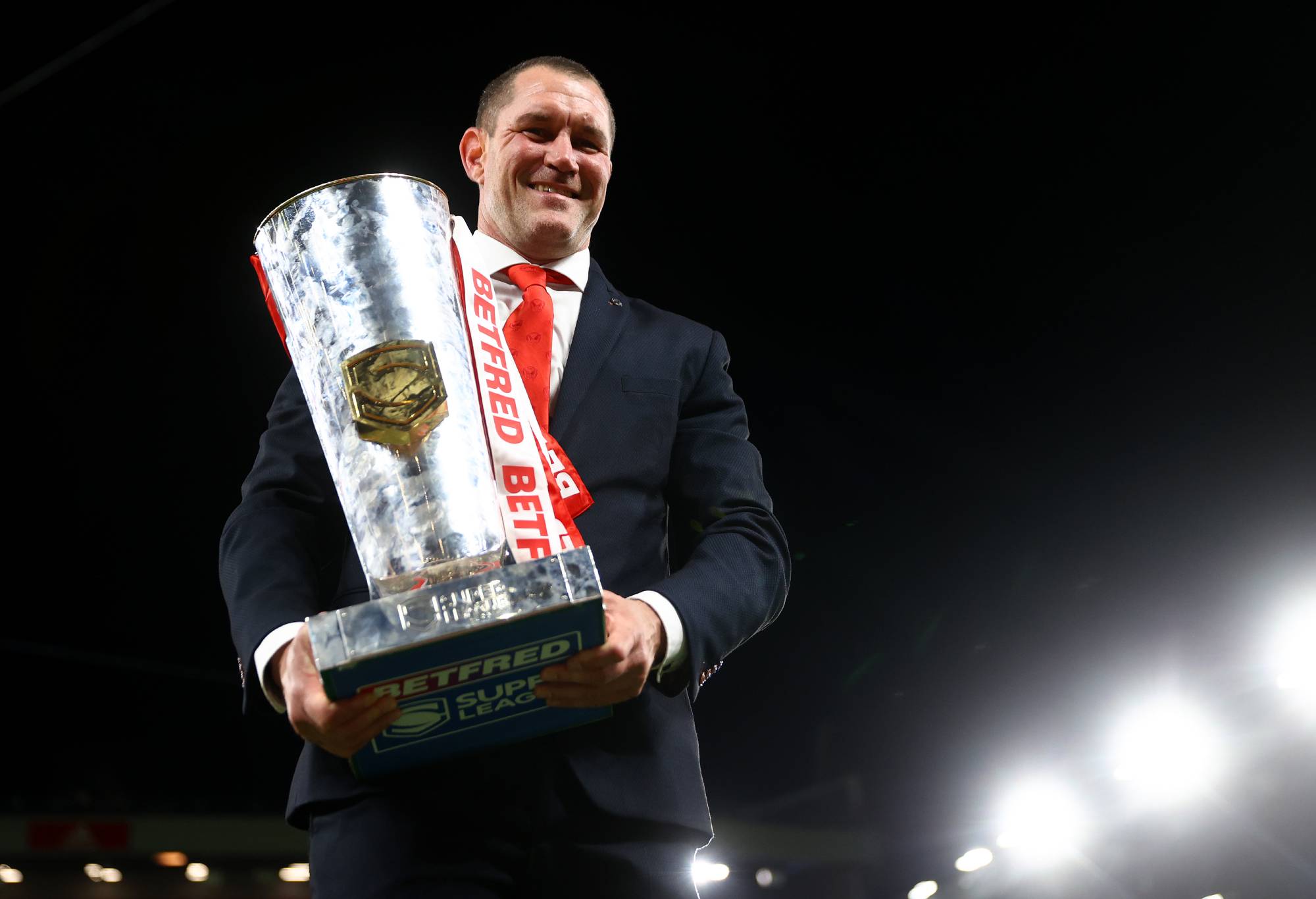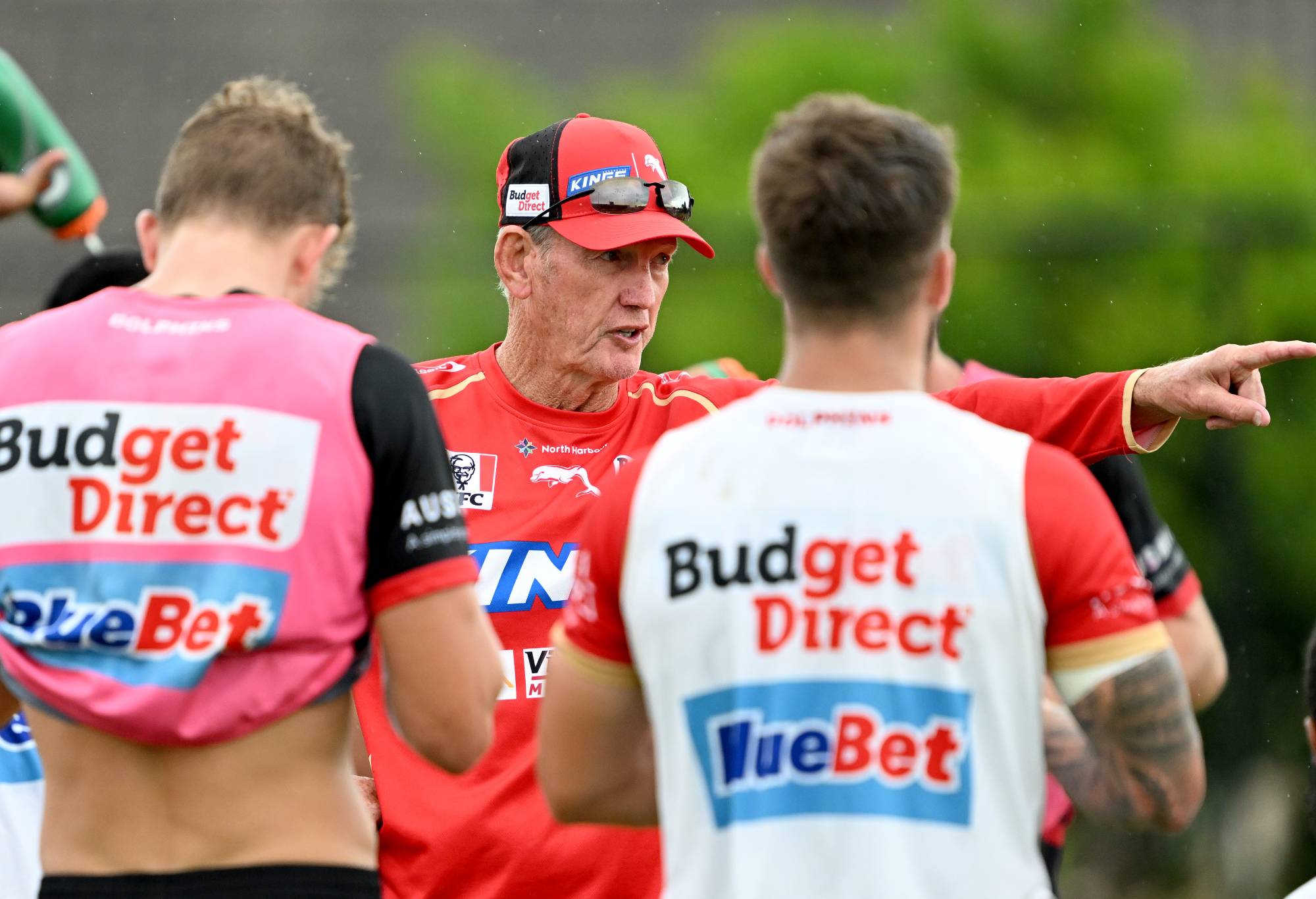Editor
It starts, as so many of these things do, with the bookmakers. They’d tell you that the Dolphins have no chance, with not so much as a ‘thanks for coming’ on offer from the bulk of them.
PlayUp have the new club dead last in the premiership odds, bank interest to miss the finals and $2.60 available on them having the fewest wins all year.
Bookies rarely get these things wrong. They’ve built a business model on it, and if you want to know who does the most sophisticated analytics in rugby league, you can have it for free that it isn’t any of the NRL clubs.
Given these things, what hope does Wayne Bennett have of getting his team to arc up for the season ahead?
He’s not dumb, so he knows what everyone else thinks will happen to the Dolphins in year one, and while printing out negative comments and pinning them to the dressing room wall does work as motivation some of the time – just ask St Helens and Gus Gould – it’s not a sustainable way to gee the lads up over a long season.
Instead, he might consider a different approach. He might talk to his boys about benchmarking.
We’ve covered the concept before at length here, but the gist is this: coaches need to measure performances independent of results to show progress to their team.
To quote myself from last year: “Coaches are never allowed to publicly state that they are not trying to win every game, or at least, aren’t bothered about winning certain games, because we do not allow it, although it is patently obvious that this is the case.”
That means using other metrics to decide whether to berate or applaud, and factoring in opposition and context. It means ignoring the result.
Guys like Bennett – or Tim Sheens, or Andrew Webster – would do well to have this front and centre. They’ll lose lots of games this year, but if they can prove to the suits above them and the players in the sheds that things are improving, then 2023 can be a success.
In the case of the Dolphins, they know that they have one of the weakest rosters and are starting a long-term project from scratch when every other team, however poor, has some continuity.
A wise old owl like Wayne, allied to a board that have been around rugby league for years, will know that year one is not about wins. One place above the spoon would be a success.
Their actions prove it too: they’ve got plenty on two-year deals to build culture and get the club off the ground, but of their established first-graders only Felise Kaufusi, Kenny Bromwich, Sean O’Sullivan, Tom Gilbert and Jamayne Isaako got three-year deals. They’re expecting a turnover.

Hamiso Tabuai-Fidow. (Photo by Bradley Kanaris/Getty Images)
Everyone else is fighting for a deal from the off. That means commitment, but also the ability to flick anyone they don’t think is up to task. For plenty of their roster, that should be motivation enough.
Blokes like Anthony Milford, Euan Aitken, Brenko Lee and Kodi Nikorima have cycled through a few clubs in the lower reaches and are probably entering last chance saloon in the next two years. Herman Ese’ese and Oliver Gildart are likely in it now. Others, like Mark Nicholls, Jarrod Wallace and Jesse Bromwich, know this is their last rodeo anyway.
Conversely, there’s a lot of very young players for whom this is their big shot. Isaiya Katoa is primed to be given the keys in year two or three, and beyond him, Jack Bostock, Mason Teague and Valynce Te Whare are all signed on with one eye on the future.
This year, the Dolphins are the best example of a club where results won’t matter. They might set themselves internal targets around a league position or key fixtures against other sides in the lower echelons, but in the end, their only goal is to be better in Round 27 than they were in Round 1.
They might even set totals for metres and field position, because the attacking cohesion required to bank points is hard to come by, and they might value the ability to be in the position to score independent of whether they actually do.
They might also track defensive resilience based on their ability to withstand long periods of pressure and repeat sets. These are the sort of things that might not be huge if you’re, say, the Dragons, where results will be the defining factor in the rating of the coach, but are priceless for the Dolphins.
With a clear succession plan in place for Kristian Woolf to take over in 2025, Bennett can also delegate well. At Souths, he gave the keys to Jason Demetriou well before he departed the head coach role, allowing for the next man up to have the best possible crack.

(Photo by Michael Steele/Getty Images)
Expect that early at the Dolphins, with Woolf the man tasked with imposing an on-field identity as Bennett builds the off-field.
In those areas, the former St Helens boss will have control to set his own standards without the pressure of the top job. Bennett can front the press and say one thing, but Woolf can measure something else.
This isn’t saying that the Dolphins ought to play as if winning doesn’t matter, but that they should take the long lens on things. Winning might be possible some of the time and not possible other times.
They certainly shouldn’t be hanging players out to dry – not least rookie outside backs – for inevitable defensive lapses in a side that will largely lose.
Ben Darwin, the former Wallaby turned expert on team cohesion in sports, flagged this up in an interview with The Roar in January.
“You generally expect the league to become more cohesive as it goes through the year, which we call ‘back-ending’,” he told me.
“The Dolphins can take advantage of that because there’s no expectations on them. If they’re 0-20, it’ll be fine, because Wayne is very patient and he’s consistent in the teams that he builds.
“As the season goes, the Dolphins could improve their cohesion and back-end it to catch a number of teams.
“Some teams last year finished the year with poor cohesion numbers, because they lose and make changes. If teams don’t change they can improve cohesion and if they change too much they can actually go backwards.”

Dolphins coach Wayne Bennett talks to his players during training. (Photo by Bradley Kanaris/Getty Images)
If they use benchmarking to assess performances, the potential for a ‘pick and stick’ policy allied to development off the field can work.
The Dolphins will certainly get plenty of chance to build cohesion and to work out what their benchmark is.
They’ve got three games outside of Queensland in the first three months of the year, so ample time on the training pitch to work it out, plus 14 seven or more day turnarounds against just one five dayer.
There’ll be no Origin involvement, either, with Tom Gilbert and Hamiso Tabuai-Fidow the only potential candidates and neither considered a first choice, plus relatively winnable fixtures against a Ben Hunt-less Dragons and a Titans team that will likely be without Tino Fa’asuamaleaui and David Fifita.
Wayne will be acutely aware that there are other yardsticks than results, even if in the short term, results solve everything.
Imagine they end the season with a 3-21 record, just like the famously rubbish 1999 Wests Magpies did, but in the process, blooded a host of young first graders, worked out who was a keeper and who they should let go, and built a whole heap of collective culture and cohesion into the bargain.
They would have at least learned something about themselves. In many ways, the entire 2023 season is like a trial for the Dolphins – but only if they choose to be sensible about what they’re looking to get out of it.